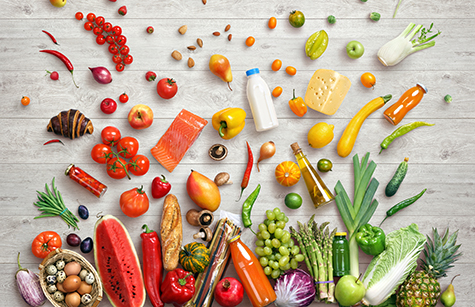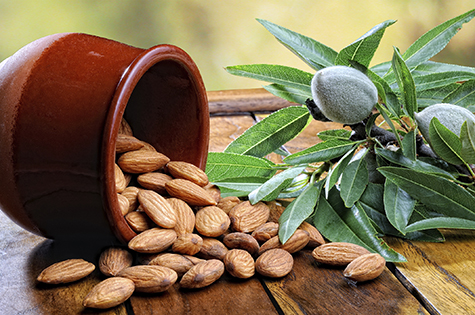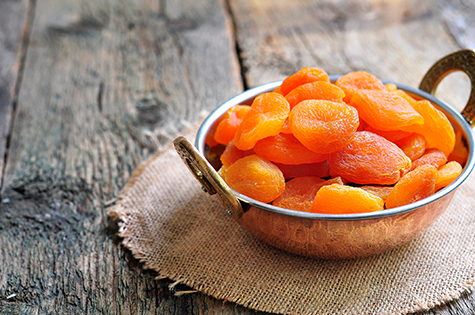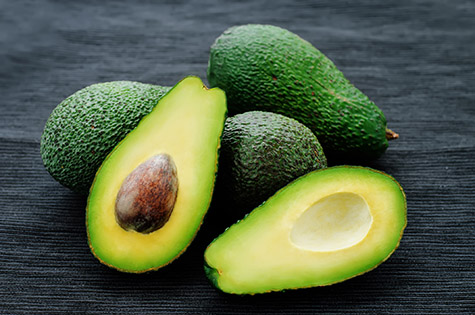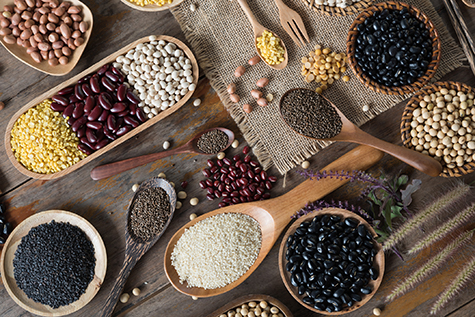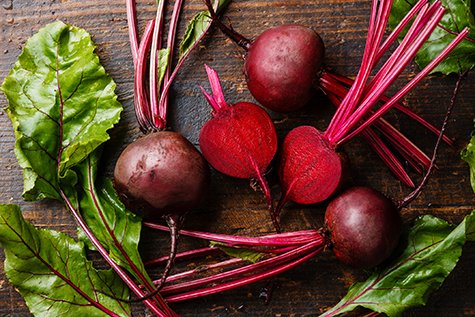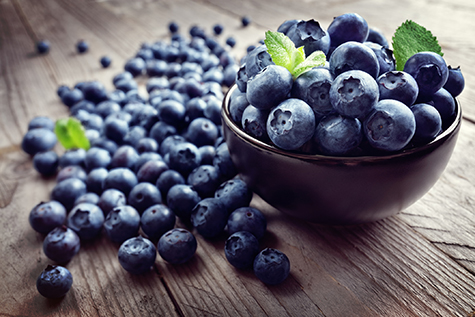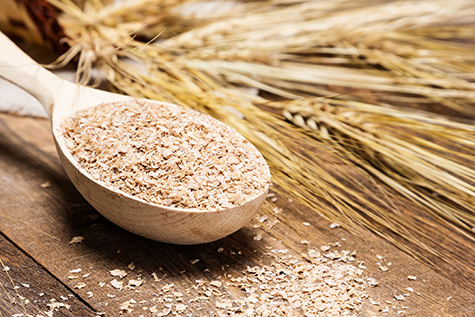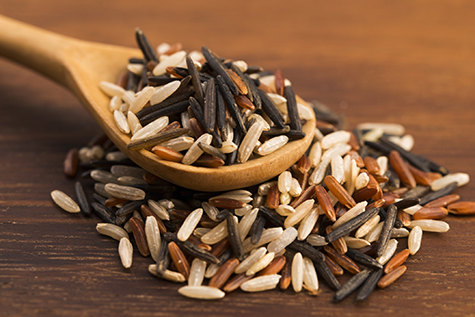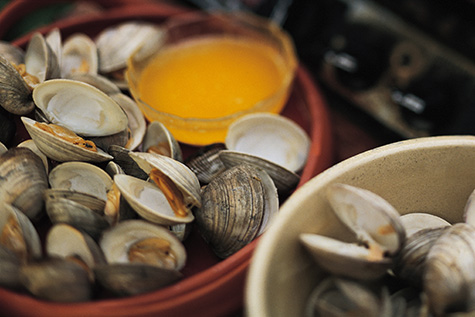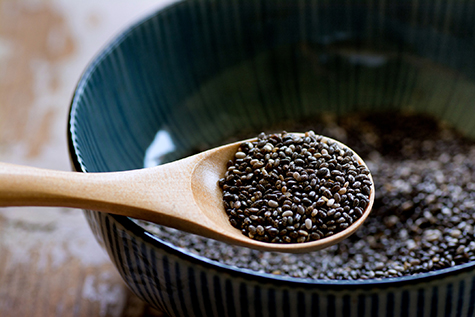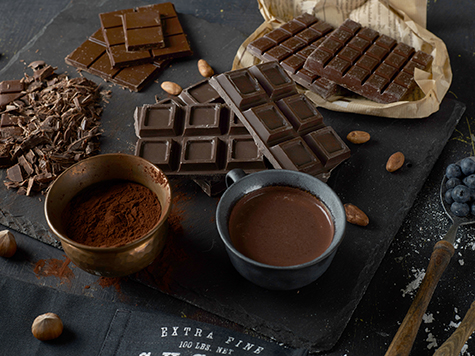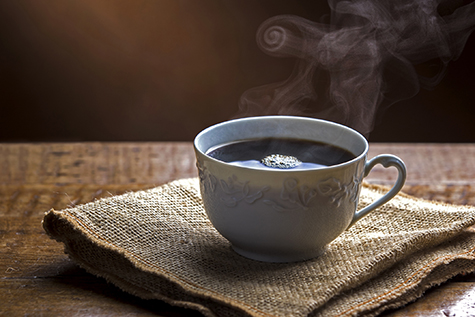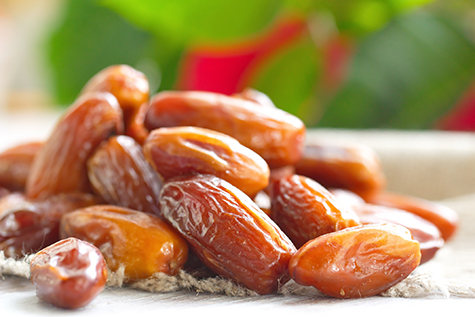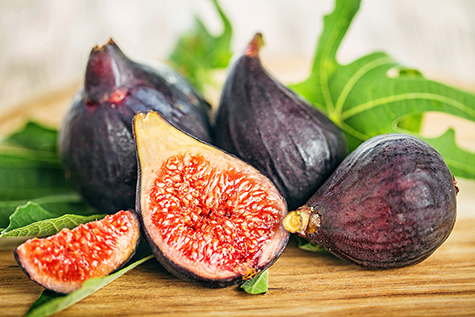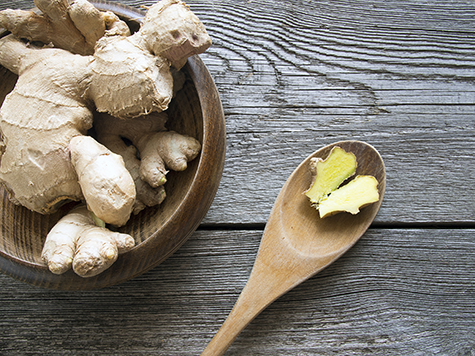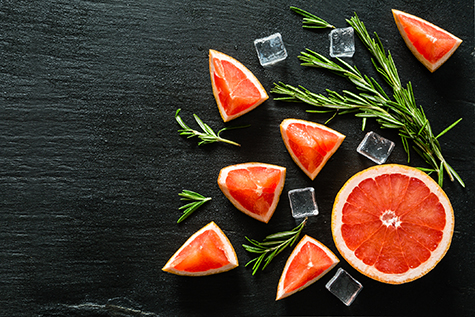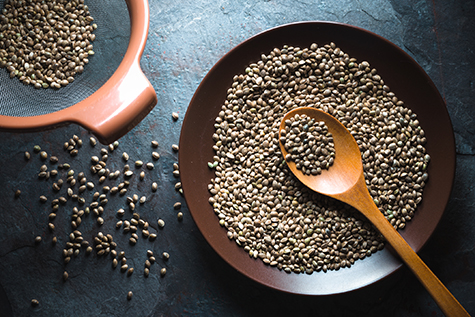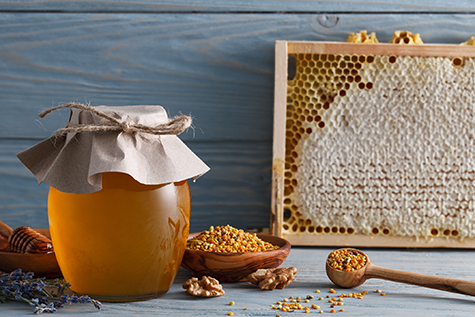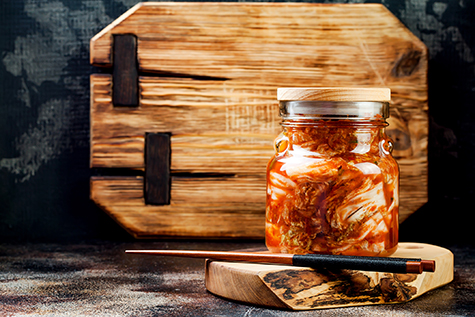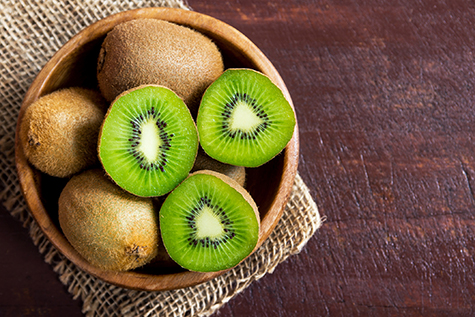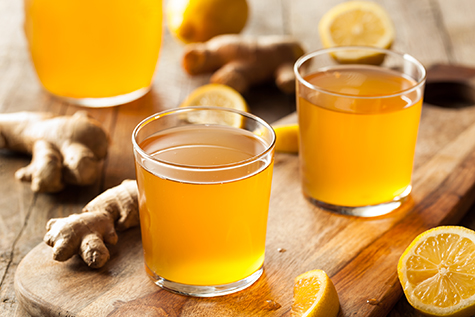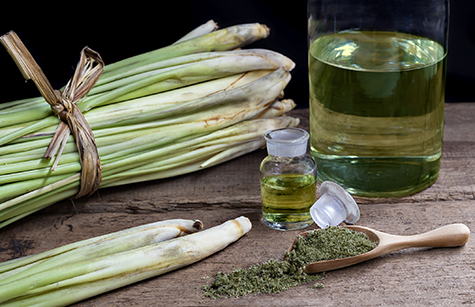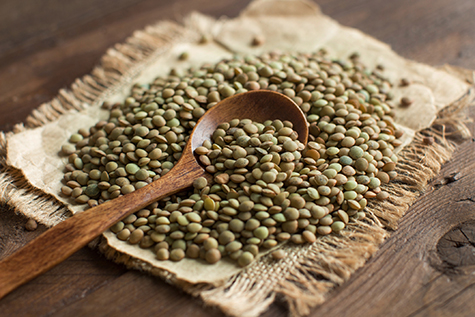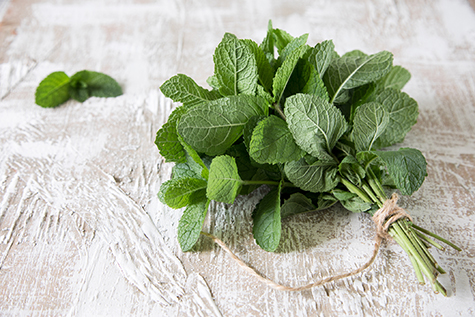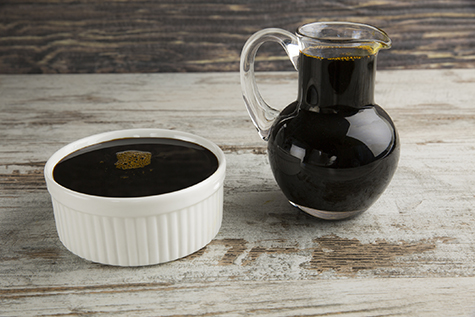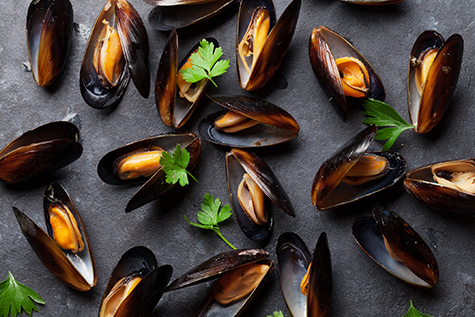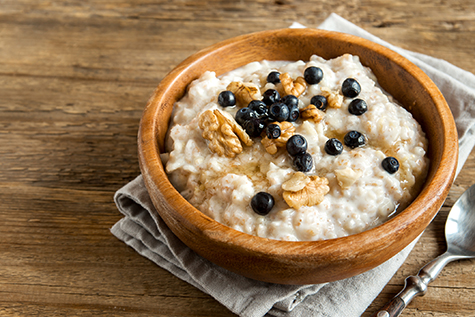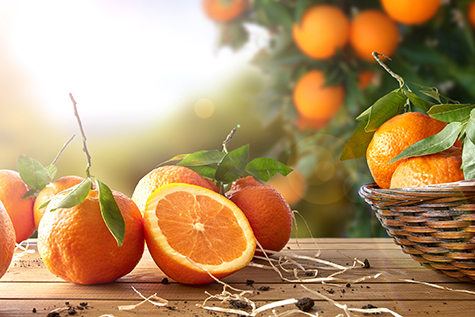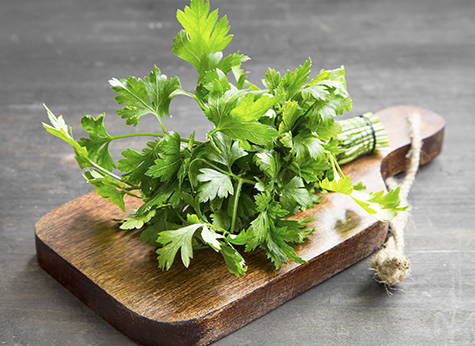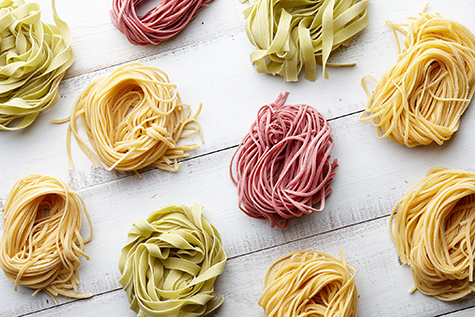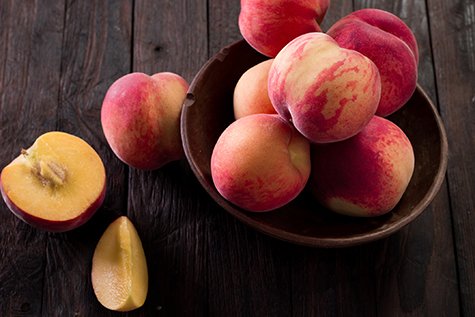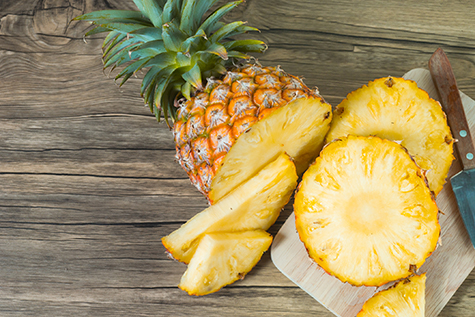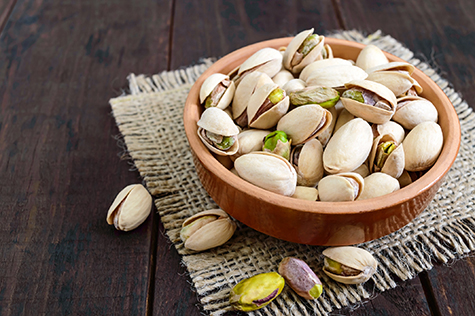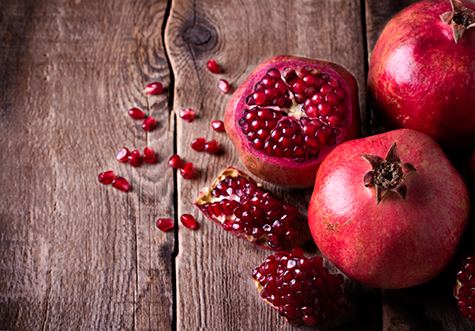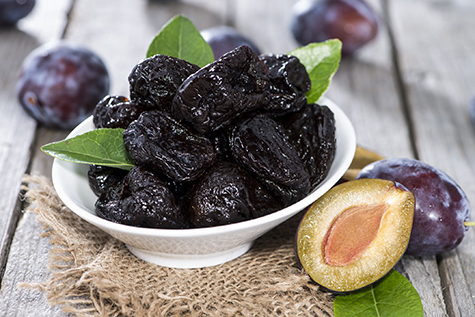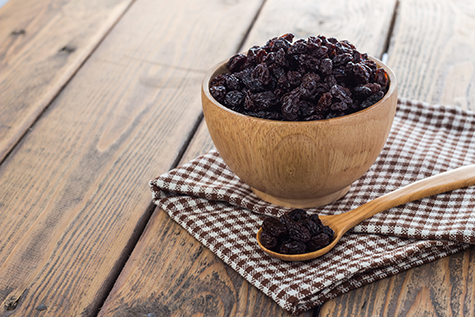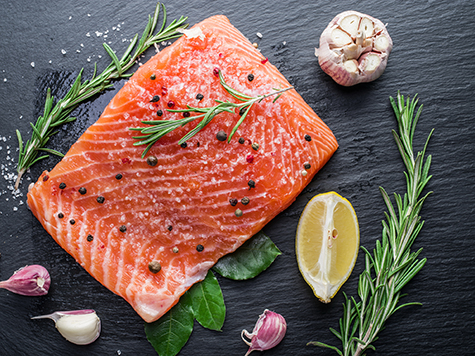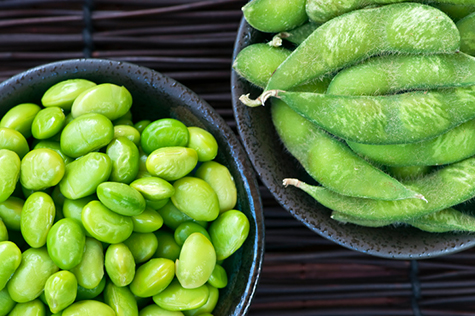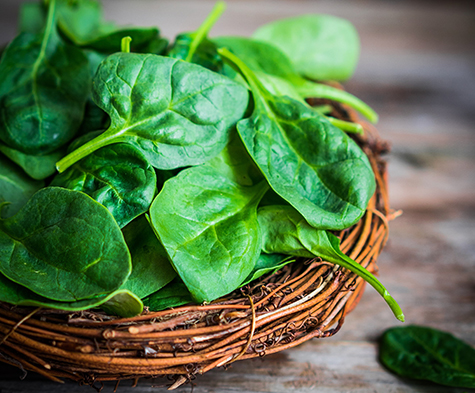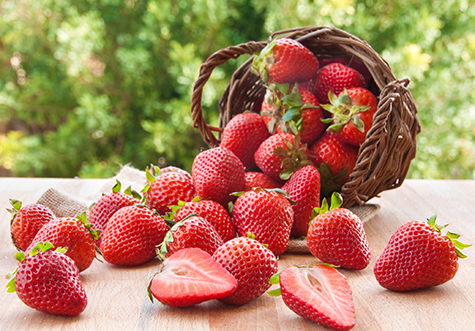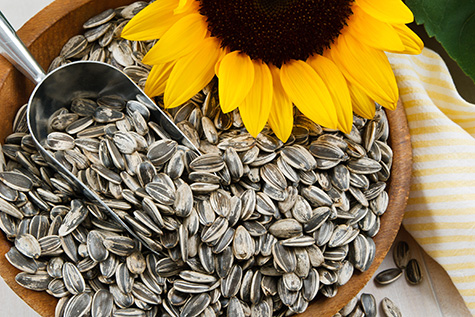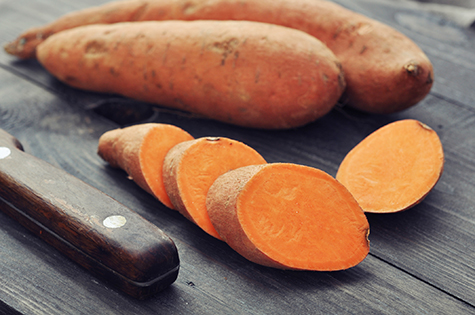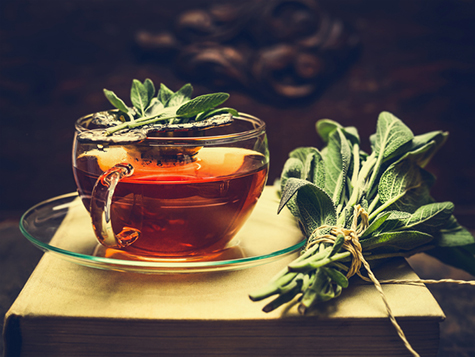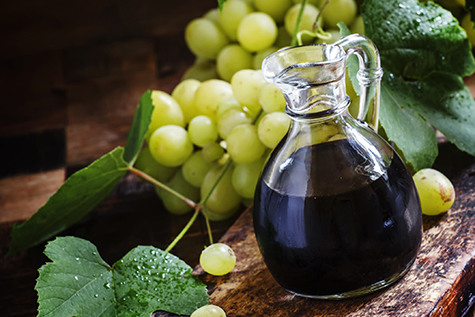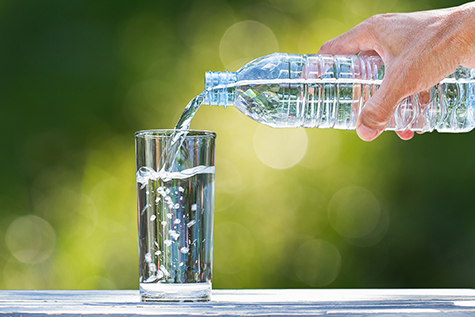Rev Up with the Top 50 Foods for Energy

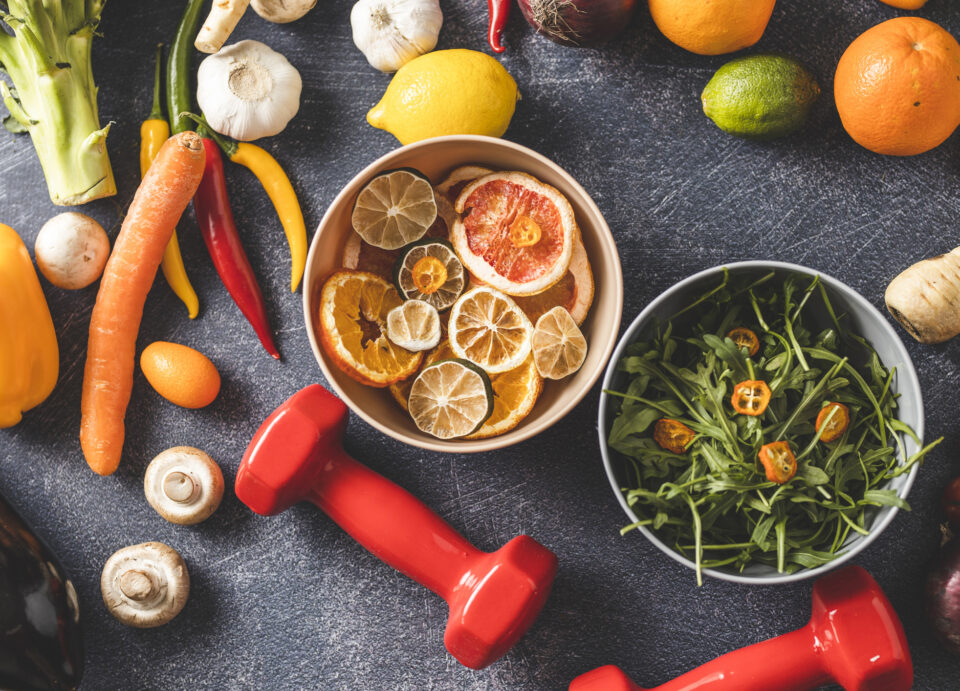
Whether you want to sleep better, work out more or lose some weight, most people are ultimately after one outcome from making health changes: more energy. Food is the fuel that provides us that get-up-and-go feeling so we can accomplish everything we want to tackle. From a light dose of caffeine to hydrating foods and those naturally packed with B-vitamins, protein, carbohydrates, or fat for fuel here is the ultimate FoodTrients® list of the top 50 foods that help boost your energy to live your best life.
1. ALMONDS
Aside from the natural energy in almonds – protein and healthy unsaturated fats – there is another factor that makes them perfectly energetic: magnesium. One ounce of dry roasted almonds provides 80mg of this important mineral, about 20% of what you need in a day. Magnesium is required for energy production including actual energy creation within the cells and glycolysis which is how the body breaks down blood sugar to create energy.
2. APRICOTS
One of the best dried fruits to include in your next trail mix? Unsulphured apricots! Packed with complex carbohydrates and fiber, they are a source of vitamin A as well as iron which helps the body function properly and allows it to transport energy-giving oxygen. Mix dried apricots with nuts and seeds for an energy rich snack.
3. AVOCADO
Everyone’s favorite fruit is packed with healthy, unsaturated fatty acids combined with antioxidants. If you find yourself feeling hungry quickly after a snack or meal, you may need to add some more healthy fats which are slower to digest and keep you feeling fuller for longer. Even 1-2 slices of avocado added to a smoothie, salad or sandwich could provide the energy you’re seeking.
4. BANANAS
The ultimate on-the-go convenience food, bananas have been proven to boost energy in athletes. In one study, they performed the same as a carbohydrate-rich beverage for improving the performance of endurance cyclists. Use bananas to fuel your next workout for a boost of carbohydrates and electrolytes.
5. BEANS
Black, pinto, cannellini, kidney, chickpea and beyond, all beans are packed with protein, complex carbohydrates, vitamins and minerals that can boost your energy levels. Slow burning to stick with you longer, just a ½ cup of beans boost digestive-supporting fiber to get things moving and keep you feeling spritely.
6. BEETS
Famous for boosting the performance of athletes, beets, especially juiced, are amazing for providing the body energy. If you’re looking for a pre-workout energyboost, beets are your bests friend. Rich in a compound called nitrates which turn into nitrite and then into nitric oxide in the body, beets help increase the body’s blood flow capacity helping you to use oxygen more efficiently while exercising.
7. BLUEBERRIES
These small, sweet berries are perfect for a quick energy boost. Blueberries contain a special combination of filling fiber, antioxidants that quench free radicals and vitamin C to support the immune system. They also contain some natural sugars including fructose which the body can use for quick fuel.
8. BRAN
Eating whole grains like bran can stabilize blood sugar after a meal according to a study in the Journal of Nutrition and Metabolism, which means more stable energy than if you ate a meal with refined carbohydrates high in added sugars. Include bran in hot or cold cereal, in salads and blended into pancakes, waffles or muffins for energy.
9. BROWN AND BLACK RICE
A whole grain cereal, brown and black rice have not been stripped of their nutrients like white rice has so they contain vitamins, minerals and antioxidants that fuel the body. Additionally, these products contain complex carbohydrates which provide energy to the muscles and the brain.
10. CLAMS
Shellfish like clams are high in protein and a variety of energy producing vitamins and minerals like iron, magnesium and B-vitamin niacin. A serving of clams is about 3 ounces or 10 small clams but even that amount provides 22 grams of protein in only 126 calories.
11. CHIA SEEDS
There’s a reason ancient South American warriors packed chia seeds with them on long treks and quests. . .they’re the whole package as far as food goes. Protein, fiber, carbohydrate, and healthy fats in addition to vitamins and minerals, you can toss chia seeds into a smoothie, in cereal or on a salad for extra energy pre- or post- workout or for a healthy snack.
12. CHILIS
Hot peppers may actually increase feeling alert and awake. Eating foods that contain spice compound capsaicin have been shown to enhance alertness and mood by stimulating the brain’s reward system. If you need a quick boost, you can skip the caffeine and grab a chili pepper instead.
13. CHOCOLATE
Aside from antioxidant flavonoids including catechin, epicatechin, and procyanidins, chocolate contains other compounds that can perk you right up such as caffeine. Performance benefits credited to caffeine include physical endurance, reduction of fatigue, and enhancing mental alertness and concentration so don’t feel guilty about that square of dark chocolate you’re craving– there are some benefits there.
14. COCONUT WATER
If intense exercise, especially in hot weather, leaves you dragging, dehydration or lack of electrolytes could be to blame. If you’re exercising for over an hour or sweating profusely, you’ll need to rehydrate with electrolytes like sodium and potassium. Choose unsweetened coconut water to replenish and restore your body’s energy.
15. COFFEE
There’s research for and against coffee, but as long as you’re not loading it up with cream and sugar, there are some health benefits. Many people use this beverage for energy and a more alert feeling. Caffeine has been linked to performance benefits including reduced fatigue and enhanced mental alertness.
16. DATES
Skip the sugar and use nutrient-rich dates for natural sweetness instead. Using dates for energy adds fiber and a variety of vitamins and minerals including iron to support the transportation of oxygen in the body. Dates can make a wonderful quick snack or dessert if you’re craving a sweet pick-me-up.
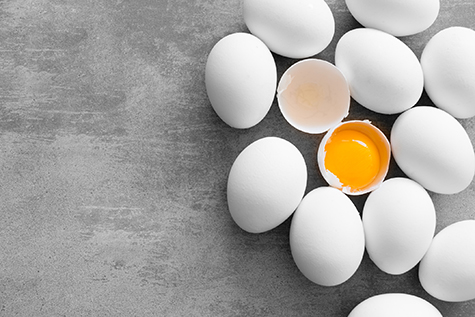 17. EGGS
17. EGGS
Eggs are a simple, quick energy source packed with protein and fat in addition to vitamins and minerals your body uses to convert energy on a cellular level. In particular, eggs contain riboflavin which is a critical B-vitamin to energy metabolism. Hard boil some eggs this week to take as an on-the-go breakfast or snack.
18. FIGS
These sweet, soft fruits are a perfect energy booster because they are full of fiber and vitamin B6 which is involved in the metabolism of energy in the body. Figs are also a good source of the electrolyte potassium so they can be an easy pre- or post workout snack that help replace what the body loses during intense activity.
19. GARLIC
Everyone’s favorite herb, garlic is part of the allium vegetable family. Though garlic doesn’t contribute energy through calories or protein, it does contain unique sulfur-containing compounds that act as antioxidants to protect cells from damage as well as warding off bacteria and viruses to keep you feeling strong and healthy.
20. GINGER
Commonly used to calm the stomach and relieve nausea, ginger root can also be used to boost alertness. It’s naturally spicy flavor can be used as a chew, infused into a beverage such as water or tea, or grated into a variety of recipes ranging from cereal and dessert to stir-fry, marinades and dressings. Sniff some ginger or chew on some when you need a little boost.
21. GRAPEFRUIT
Start the day with a zesty-flavored fresh grapefruit for a little boost. Packed full of fiber, water, complex carbohydrates, and antioxidant vitamin C, this citrus fruit helps keep you alert and refreshed.
22. HEMP SEEDS
Tiny little hemp seeds, also called hemp hearts, are an energetic powerhouse. Proving a unique combination of protein, fiber and complex carbohydrates in addition to healthy fats including omega-3 essential fatty acids, you can include hemp seeds in cereal or trail mix or add them to yogurt for a boost of healthy calories and energy.
23. HONEY
This natural sweetener can really get your energy going with a shot of glucose that provides your brain and muscles quick burning energy. There’s a reason energy gels, chews and goos sometimes contain honey. Known as a natural-food based recovery, honey provides quick energy through carbohydrate that comes from an unprocessed source: bees!
24. KIMCHI
This traditional Korean fermented cabbage contains good bacteria that can help support your gut microbes and keep the digestive system running smoothly so you feel light and energized instead of weighed down. Better yet, kimchi is spicy and foods that contain heat have also been linked to increased energy and alertness.
25. KIWI
A perfect individual serving of energy-promoting fruit, sweet green kiwi fruit are naturally packed full of essential nutrients including folate and vitamin C in addition to carbohydrates that fuel your muscles and brain. Grab one for breakfast or a snack when you need energy on the go.
26. KOMBUCHA
This sweet and slightly vinegar flavored fermented tea contains good bacteria that can support healthy digestion through boosting good bacteria in the gut. If you enjoy the flavor of kombucha, include it as a healthy, energy-boosting and hydrating beverage.
27. LEMONGRASS
This natural food flavoring is often used in Asian cuisines and has a a citrus flavor that also tastes like other herbs including mint. Human studies have shown that exposure to the lemongrass scent calmed anxiety in adults and made them feel more balanced. If you need a pick-me-up, try sniffing some lemongrass, or better yet, savor it in your next healthy recipe.
28. LENTILS
These tiny legumes are a rich source of slow-burning complex carbohydrates as well as critical energy boosters like iron which transports oxygen to tissues around the body. A versatile ingredient, use lentils in salads, non-meat loafs, veggie burgers, casseroles, soups and stews.
29. MINT
Fresh mint from the garden is so versatile and can brighten up water, salads, desserts and dishes like fresh spring rolls with their aroma and spicy flavor. Though mint doesn’t contain calories, it can still cause you to feel more alert and energetic so use it in the morning when you’re headed out the door or mid-day if you hit an energetic slump.
30. MOLASSES
Similar to other natural sweeteners such as honey, molasses can really get your energy going with a shot of glucose that provides your brain and muscles quick burning energy. Molasses has the lowest sugar content of any sugarcane product the added health benefit of some vitamins and minerals such as B6 and iron which are both essential to energy pathways in the body.
31. MUSSELS
Shellfish like mussels are high in protein and a variety of energy producing vitamins and minerals like iron, magnesium and B12. A serving of mussels is about 3 ounces or 20 mussels – depending on the size as there are many varieties. Because they soak up the nutrients from the environment in which they grow, fresh mussels are packed with vitamins and minerals.
32. OATMEAL
Not only are oats a slow burning carbohydrate that can offer the body energy for hours as it slowly digests, it is also rich in some nutrients that specifically target energy. Thiamine is a B-vitamin commonly found in animal foods like liver and pork but oats are also a good plant-based source. Because all B-vitamins work together to create energy on a cellular level, it is critical to get all eight of them daily from food.
33. ORANGES
Peel and eat, pack and carry this on-the-go food for energy. Full of natural sugars for the body to rely on for a pick-me-up, oranges also contain free radical quenching vitamin C and B-vitamin thiamine which is involved in creating energy in the body on a cellular level.
34. PARSLEY
Zesty parsley has it all – vitamin K for healthy blood consistency, vitamin C to keep sickness at bay, iron for proper oxygen transport, B vitamins for energy metabolism. Whether you enjoy flatleaf or curly, incorporate parsley as more than just a pretty garnish to reap these energetic benefits.
35. PASTA
Everyone’s favorite carbohydrate sometimes received undeserved negativity. In fact, pasta can be included in a healthy diet. For best results and maximal energy from this carbohydrate food, choose a whole grain variety made from wheat. You’ll get more fiber, vitamins and minerals than pasta made from white, refined flour.
36. PEACH
Rich in fiber to support a healthy gut, peaches and other stone fruit also contain antioxidants like vitamin C and carotenoids to calm inflammation and support the body in being at optimum levels. Peaches contain natural sugars and carbohydrates to get your energy up quickly. They’re a perfect breakfast, mid-day snack or dessert.
37. PINEAPPLE
A little pineapple goes a long way. This tangy fruit provides vitamin C and a natural energy source in its carbohydrate content in just one ½ cup serving. Unique compounds such as bromelain aid digestion so that the body can properly break down and absorb other critical nutrients, keeping other foods moving through the digestive tract quickly and efficiently.
38. PISTACHIOS
Though pistachios and other nuts are considered dense in calories, there are studies that show because of their high fiber content, not all of it may be absorbed. This is one reason that nuts show up repeatedly as positive for weight management. Pistachios contain a nice combination of protein, healthy fat and fiber so a portion is perfect for a snack or mid-day pick-me-up when you need energy.
39. POMEGRANATES
These beautiful red fruits are rich in antioxidants called flavonoids which support cardiovascular health and help fight free radical damage. Better yet, pomegranate arils are loaded with vitamin C and exhibit antimicrobial, antioxidant, anticancer, and anti-inflammatory properties to help the body feel and perform it’s best maximizing that everyday energetic feeling.
40. PRUNES
If you need some quick carbs…or some quick digestive support, prunes are certainly a wholesome, natural option. Very high in fiber and natural sugars, just 1-2 can boost blood sugar to satiate that sweet tooth when you need some energy. Also, prunes are proven to support healthy digestion, moving things along if you’re feeling constipated.
41. RAISINS
Simple dried grapes have some helpful health benefits to them. A box of raisins is easy to pack for a run or toss in your purse or backpack for energy on-the-go. A source of carbohydrates to support both your muscles and brain, raisins also contain iron to maximize the transportation of oxygen.
42. SALMON
Aside from protein in salmon which is a natural energy booster, this fatty fish also includes a healthy dose of anti-inflammatory omega 3 fatty acids. Essential to get from the diet because the body can’t make them on its own, studies have shown that getting enough omegas from foods like salmon are critical for health. American Heart Association recommends two servings of salmon per week.
43. SOY
Soy foods like tofu, tempeh, soy milk, edamame and miso are a rich source of energy boosting protein as well as antioxidant compounds. Studies have found that genistein, an antioxidant called isoflavone in soy helps to protect cells from DNA damage. Aside from naturally protecting and supporting the body, soy foods are also rich in magnesium, a mineral critical to energy production.
44. SPINACH
This slightly sweet, soft dark leafy green is a sure energy booster. Packed with magnesium which is required for energy production in the body and iron which helps transport oxygen, spinach also contains vitamins and antioxidants to sooth inflammation. Add spinach to eggs, casseroles and stews or even blend it into a smoothie for a boost of nutrients and energy.
45. STRAWBERRY
Everyone’s favorite berries contain more vitamin C per serving than some citrus and including them in the diet has been linked to a boost in immunity which always helps the body feel strong and energetic. Strawberries contain potent free radical scavenging antioxidants and they also contain natural sugars that the body can use to fuel the muscles and brain for quick energy.
46. SUNFLOWER SEEDS
These tiny seeds are a good source of protein and healthy fat as a source of calories when you need them. They also contain some nutrients critical to the supporting health and wellbeing including antioxidants like vitamin E and zinc for healthy skin and a strong immune system.
47. SWEET POTATOES
These orange potatoes contain heart healthy fiber, vitamin A, and slow burning carbohydrates to keep you going without a sugar crash. Despite their name, they are not sugary but they do have a pleasant slightly sweet flavor. Use them in your next stir-fry, Buddha bowl, breakfast burrito or soup.
48. TEA
Aside from being packed full of antioxidants, tea is incredibly hydrating and many varieties (green, black and white) also contain caffeine in varying amounts. While there are several reasons tea increases alertness, it’s the caffeine that has the potential to boost physical endurance, reduce fatigue, and enhance mental alertness and concentration.
49. VINEGAR
Forget white or wine-based vinegars, apple cider vinegar is where it’s at for energy and vitality. Because it contains a scoby, or fermented source, apple cider vinegar provides some natural probiotics to support a healthy digestive system. Some people sweat by adding a shot of it to water and gulping it down to start their day. So long as it’s diluted and you enjoy the practice, there’s no harm in doing so and some people find it very energizing.
50. WATER
Feeling a bit lethargic and tired? The first thing you should do is reach for a glass of water or two. A 2012 study presented in the Journal of Nutrition found that young women who were mildly dehydrated reported feeling fatigued. If you need a boost, think of water first.
Armstrong LE, Ganio MS, Casa DJ, Lee EC, McDermott BP, Klau JF, Jimenez L, Le Bellego L, Chevillotte E, Lieberman HR. Mild Dehydration Affects Mood in Healthy Young Women, 2. The Journal of nutrition. 2011;142(2):382-8.
Routray W, Orsat V. Blueberries and their anthocyanins: factors affecting biosynthesis and properties. Comprehensive Reviews in Food Science and Food Safety. 2011;10(6):303-20.
Kapusta-Duch J, Kopec A, Piatkowska E, Borczak B, Leszczynska T. The beneficial effects of Brassica vegetables on human health. Roczniki Państwowego Zakładu Higieny. 2012;63(4).
Heckman MA, Weil J, De Mejia EG. Caffeine (1, 3, 7‐trimethylxanthine) in foods: a comprehensive review on consumption, functionality, safety, and regulatory matters. Journal of food science. 2010;75(3):R77-87.
Kennedy DO. B vitamins and the brain: Mechanisms, dose and efficacy—A review. Nutrients. 2016;8(2):68.
National Institutes of Health. Dietary Supplements: Magnesium. https://ods.od.nih.gov/factsheets/Magnesium-HealthProfessional/. March 2, 2018.
National Institutes of Health. Dietary Supplements: Iron. https://ods.od.nih.gov/factsheets/Iron-HealthProfessional/. March 2, 2018.
Higgins JA. Whole grains, legumes, and the subsequent meal effect: implications for blood glucose control and the role of fermentation. Journal of nutrition and metabolism. 2012.
Nieman DC, Gillitt ND, Henson DA, Sha W, Shanely RA, Knab AM, Cialdella-Kam L, Jin F. Bananas as an energy source during exercise: a metabolomics approach. PLoS One. 2012;7(5):e37479.
Cermak NM, Gibala MJ, Van Loon LJ. Nitrate supplementation’s improvement of 10-km time-trial performance in trained cyclists. International journal of sport nutrition and exercise metabolism. 2012;22(1):64-71.
Rohm B, Holik AK, Somoza MM, Pignitter M, Zaunschirm M, Ley JP, Krammer GE, Somoza V. Nonivamide, a capsaicin analog, increases dopamine and serotonin release in SH‐SY 5 Y cells via a TRPV 1‐independent pathway. Molecular nutrition & food research. 2013;57(11):2008-18.
Worlds Healthiest foods: Figs. http://www.whfoods.com/genpage.php?tname=foodspice&dbid=24. Accessed 6/29/18.
Goes TC, Ursulino FR, Almeida-Souza TH, Alves PB, Teixeira-Silva F. Effect of lemongrass aroma on experimental anxiety in humans. The Journal of Alternative and Complementary Medicine. 2015;21(12):766-73.
Worlds Healthiest foods: Parsley. http://www.whfoods.com/genpage.php?dbid=100&tname=foodspice. Accessed 6/29/18.
Baer DJ, Gebauer SK, Novotny JA. Measured energy value of pistachios in the human diet. British Journal of Nutrition. 2012;107(1):120-5.
